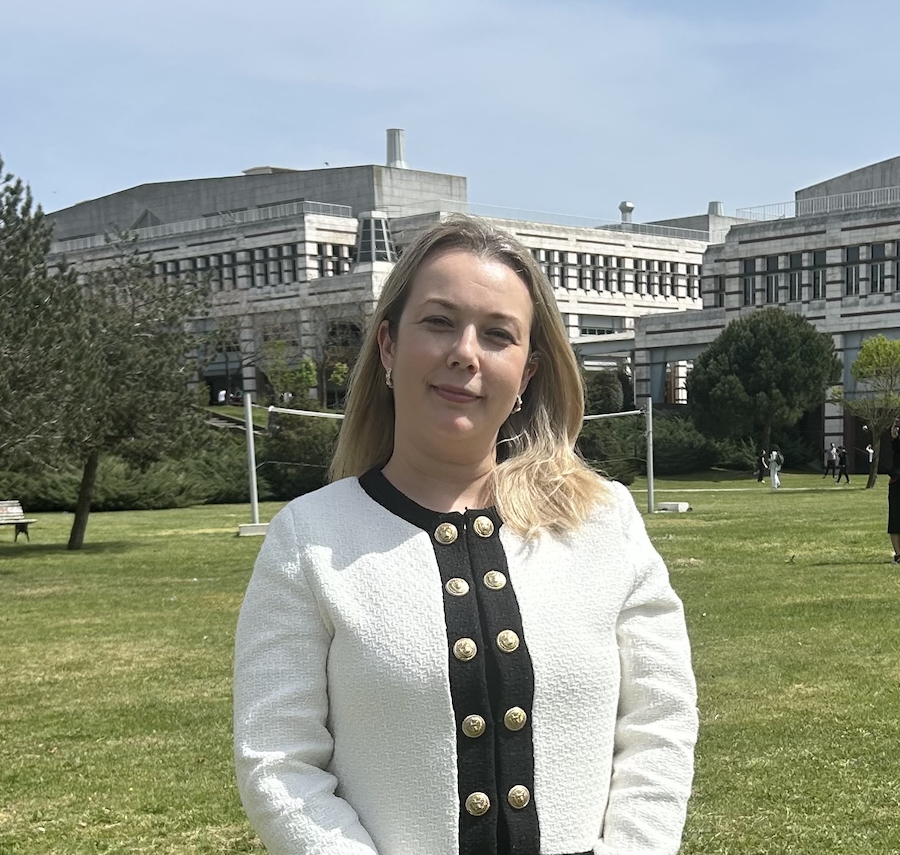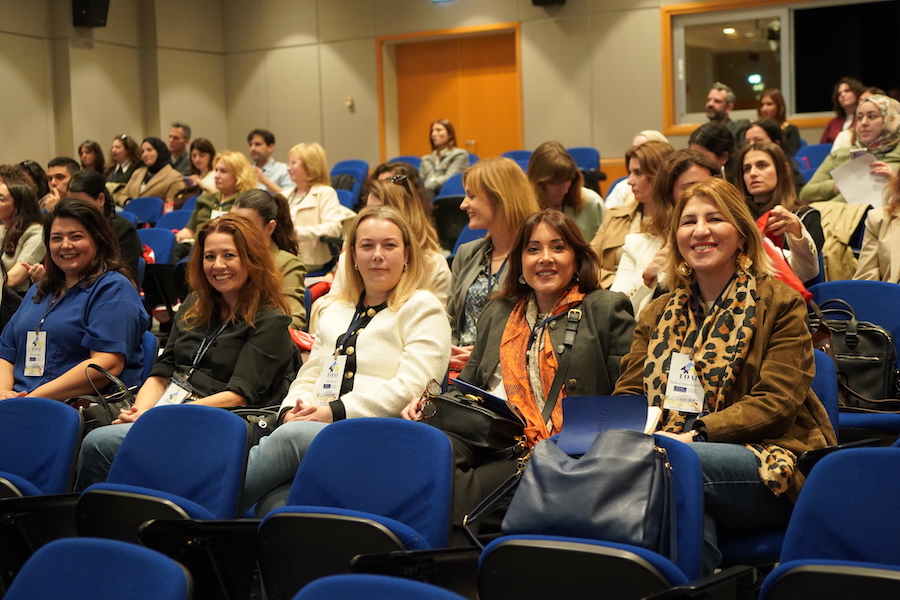FOAI 14

FOAI 14
April 18th-19th 2025, Sabancı University – Assessing Speaking
by Selin Şenay
Plenary: Revisiting the assessment of speaking after the CEFR CV: Why? How?
The plenary session of the forum was given by Dr. Neus Figueras, who provided a comprehensive overview of how speaking skills can be effectively assessed in line with the Common European Framework of Reference for Languages (2009). She emphasized that assessment should not be limited to surface-level fluency or grammatical accuracy but should consider broader aspects such as discourse management, coherence, interaction, and task fulfillment. She specifically focused on mediation, an aspect expanded in the CEFR Companion Volume (2020). In mediation, the learner is viewed as a social agent who actively contributes to mutual communication by building bridges between people, texts, and ideas, often overcoming linguistic, cultural, or technical barriers.
The plenary also addressed the construction and use of assessment criteria. Figueras argued that effective speaking assessment should be grounded in clear constructs, which supports the development of valid and reliable rubrics. She encouraged educators and institutions to move toward criterion-referenced judgments, train their raters for standard setting, and adopt learning-oriented assessment (self-assessment, peer assessment and dialogic feedback), which aims not only to measure outcomes but also to provide feedback and promote learner agency.
Focus Group Discussions
In the following sessions, FOAI 14 participants worked in five groups focusing on various aspects of speaking assessment and prepared a presentation based on their discussion. The highlights of the Group D’s session, facilitated by Asst. Prof. Esin Çağlayan, focusing on “Assessing Speaking for Academic Purposes” can be summarised as follows:
● The first topic centered on the key considerations when designing speaking assessment. Practical and logistical issues such as the availability of recording equipment, class sizes, and administrative limitations were identified as common barriers. Time constraints were also flagged, particularly in programs with tight teaching calendars that limit opportunities for robust speaking assessment and practice. Another important consideration was the alignment between classroom instruction and assessment. The group emphasized that speaking tasks should reflect what is taught and practiced in class, ensuring coherence between instructional goals and evaluative measures.
● Rater bias emerged as a critical issue, and the importance of standardized rater training, CEFR-aligned clear criteria/rubrics shared with students in advance is stressed widely.
● The group also emphasized the importance of aligning tasks with CEFR descriptors. Assessment should begin with curriculum objectives informed by CEFR levels, and tasks should be designed accordingly. To improve validity, assessments should include a variety of speaking task types such as research-based presentations, interviews, debate, and role-plays to capture the full range of targeted skills. Other factors such as cognitive load and special conditions (e.g., speech disabilities) should also be considered to ensure fairness and accessibility.
Attending the plenary session and group discussion significantly deepened my understanding of both the theoretical underpinnings and the practical considerations of speaking assessment in tertiary contexts. Especially, the emphasis on the expanded descriptors on mediation prompted me to reflect more deeply on how to design and implement classroom practices and assessment tasks in which students take on the role of mediators in more authentic ways.
For further details regarding FOAI 14 plenary sessions and the presentations of focus groups, you may visit FOAI website https://foaionline.wordpress.com

